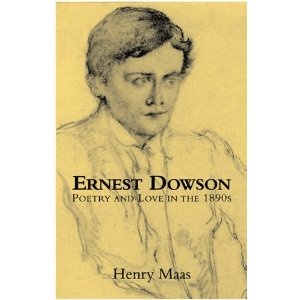Poetry in Translation (CXCI): Ernest DAWSON, England, (1867-1900), “Vitae suma brevis spem nos vetat incohare longam”, “Sum of life”, “Crâmpei de viaţă”
Crâmpei de viaţă
ERNEST DAWSON (1867 – 1900)
Nu au ecou, nici râsul dela masă,
Nici plânsul din trecut, pribeagul.
Din inimă nu ne-am clădit o casă,
Când trecem pragul.
Căci zilele-nsorite şi de visuri
De mult s-au stins.
Un drum se pierde prin hătişuri
De dor cuprins.
(Rendered in Romanian by Constantin ROMAN, London,
© 2013 Copyright Constantin ROMAN)
* * * * * * * * * * * * * * * * * * *
Vitae suma brevis spem nos vetat incohare longam
ERNEST DAWSON (1867 – 1900)
They are not long, the weeping and the laughter,
Love and desire and hate:
I think they have no portion in us after
We pass the gate.
They are not long the days of wine and roses,
Out of a misty dream:
Our path emerges for a while, then closes
Within a deam.
SHORT BIO:
Ernest Christopher Dowson (2 August 1867 – 23 February 1900) was an English poet, novelist and writer of short stories associated with the Decadent movement. He was a member of the Rhymers’ Club, which included W. B. Yeats and also was a prolific translator of French fiction, including novels by Balzac and the Goncourt brothers, and Les Liaisons dangereuses by Choderlos de Laclos.
In 1889, at the age of 23, Dowson fell in love with the eleven-year-old Adelaide “Missie” Foltinowicz, the daughter of a Polish restaurant owner. Adelaide is reputed to be the subject of one his best-known poems, “Vita suma brevis”. He died of alcoholism, at the age of 32.




No Comments so far ↓
Like gas stations in rural Texas after 10 pm, comments are closed.